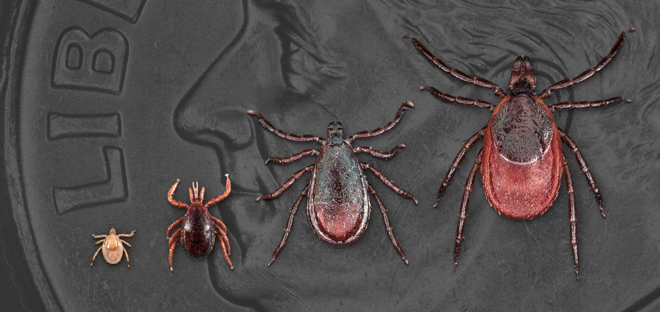
WARREN COUNTY HEALTH SERVICES ADVISES OF TICK THREAT’S SEASONAL ARRIVAL
WARREN COUNTY, NY -- Warren County Health Services is encouraging residents to take precautions to avoid tick bites, with dozens of tick-borne disease cases already being received by Warren County Health Services staff this spring.
To help residents learn about tick-related threats, Warren County Health Services staff plan to have outreach events at hiking and biking trailheads on Thursday, May 5, distributing free tick removal kits and educational materials about tick bite prevention. The staff will be on hand at Cole’s Woods in Glens Falls (Fire Road entrance) and Rush Pond Trail in Queensbury (West Mountain Road entrance) between 1 p.m. and 3 p.m., with additional events to be scheduled as well.
Tick activity picks up annually in the warmer months, and they are already looking for hosts -- be they human, canine or others -- on whom to latch.
Residents should know that they can come in contact with ticks doing yard work, taking a walk on a trail or any other outdoor activity in grass or forest.
2021 was a year with a five-fold increase in Warren County cases of anaplasmosis, a serious bacterial disease transmitted through tick bites. And so far this year, 17 anaplasmosis infections have been reported in Warren County, ahead of last year’s pace.
Lyme Disease remains the most common infection from tick bites, while rare disorders from ticks known as babesiosis, Powassan virus and ehrlichiosis have been documented in the region as well.
Warren County Health Services Director Ginelle Jones explained: "The disease threat from ticks is one to take seriously, and we are already at the time of year where ticks are becoming more active and they will stay active until winter. Please take precautions to keep ticks off of you, and check yourself after you have been outside to make sure you don't have an unwanted passenger that can make you sick.”
Those who go to woods, grassy areas or fields where ticks are present should take precautions that include:
- Wearing clothing treated with permethrin to repel ticks.
- Using insect repellent on exposed skin. Effective repellents include DEET, picaridin, IR3535, Oil of Lemon Eucalyptus (OLE), para-menthane-diol (PMD), or 2-undecanone. The U.S. Environmental Protection Agency has created a website to help you decide what insect repellent is right for you and your family.
- Wearing light colored clothing and a hat, and wearing long pants tucked into socks, long-sleeved shirts fitted at wrists and closed-toe shoes.
- Walking in the middle of the trail when hiking, to avoid brushing up against flora.
- Performing a full body check, including in hair and other hard to see areas, and checking clothing for ticks after an outing. Showering after an outing is highly recommended.
Those who have a confirmed or suspected tick bite should seek medical assistance if seeing a rash or red “bullseye” at the site of the bite, or developing fever and/or chills, headache, muscle aches or nausea, vomiting, diarrhea and loss of appetite for up to 30 days after being bitten.
In addition, those who develop any of these symptoms and have been in tick habitats but don’t recall seeing a tick on them or being bitten by a tick, tell your doctor. It is possible to be bitten by a tick and not know it.
Those with questions can contact Warren County Health Services at 518-761-6580. More information can be found online with the NY Department of Health website here.
